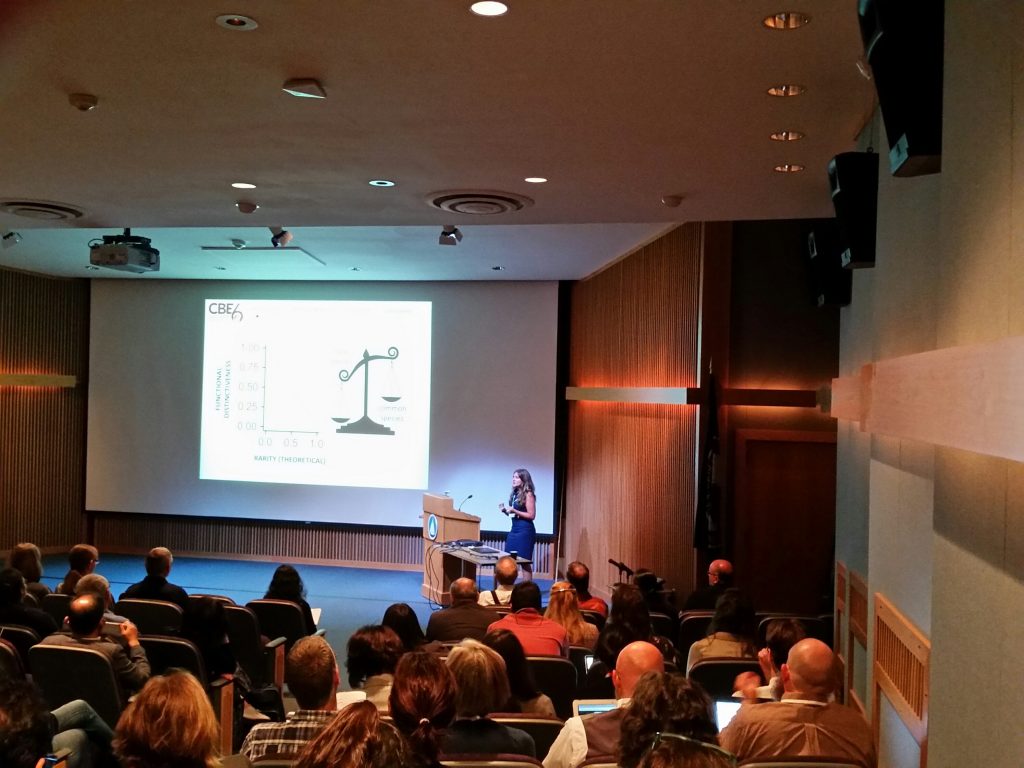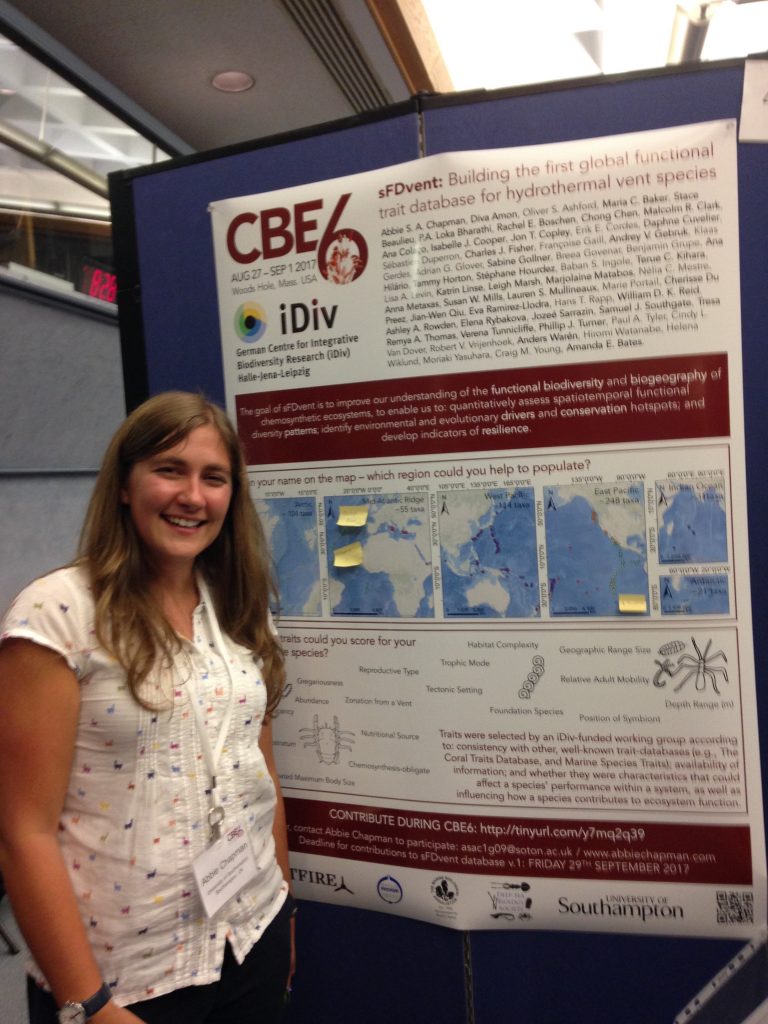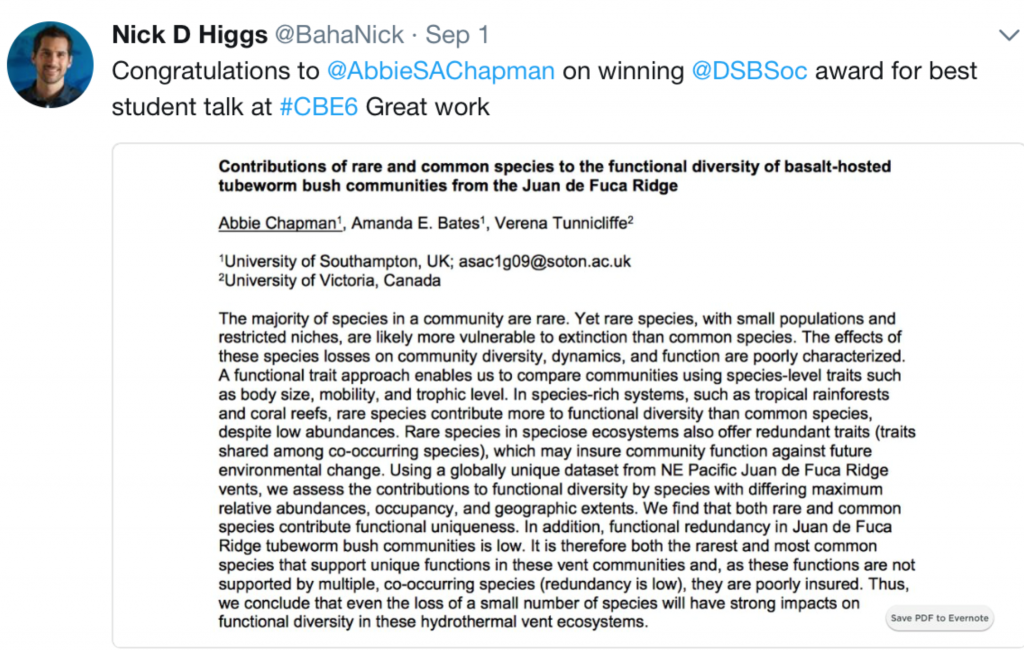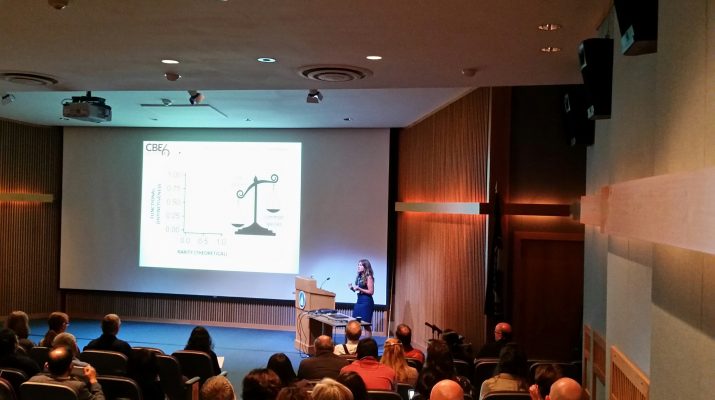I was fortunate to attend the 6th International Symposium on Chemosynthesis-Based Ecosystems (CBE6 – http://cbe2017.org), hosted by Woods Hole Oceanographic Institution (Boston, USA), thanks to a generous travel award from the Deep-Sea Biology Society. As this was my first international conference, I travelled to Boston as a very nervous PhD student, about to deliver my first conference talk and also present a poster. I am pleased to report, thanks to a warm welcome and continued support from the chemosynthesis-based ecosystem research community, that I return a more confident speaker and scientist!
After attending a thought-provoking meeting of the Deep-Ocean Stewardship Initiative (DOSI – http://dosi-project.org), I attended a public talk given by Dr Robert Ballard (http://www.whoi.edu/darklife) – an inspirational account of the early years of exploration that resulted in the discovery of life surviving without sunlight, thousands of metres below the sea surface, 40 years ago. The next day, I gave my talk on ‘Contributions of rare and common species to the functional diversity of basalt-hosted tubeworm bush communities from the Juan de Fuca Ridge’, summarising the research I have been working on for my PhD with Dr Amanda Bates and Professor Verena Tunnicliffe – soon to be submitted for publication.

I had positive and helpful feedback on my talk and thoroughly enjoyed learning about the breadth and depth of other research shared during talks and posters throughout the symposium. For information on talks and speakers, I would recommend checking Twitter for #CBE6 as there were some great summary tweets sent out by members of the Deep-Sea Biology Society! Later in the week, I presented a poster on work being developed by the sFDvent working group (https://www.idiv.de/?id=423) and an international team of collaborators. The sFDvent group aim to compile the world’s first global trait database for hydrothermal vent fauna with help from contributors across the globe. The poster session at CBE6 provided an excellent opportunity to explain the project to those that might have appropriate data and expertise and to make a final call for contributions, ahead of the assembly of version one of this database (with a deadline on 29th September 2017).

At the end of the conference, I was shocked and thrilled to find that I had been awarded ‘Best Student Talk’ by the Deep-Sea Biology Society!

In conclusion, I can say without doubt that my experience at CBE6 was incredibly interesting (with many future research avenues to explore during and after my PhD), very busy, and empowering too – taking me from a nervous ‘newbie’ to a more confident member of the research community. I would therefore like to say thank you to the Deep-Sea Biology Society for supporting my attendance at this Symposium and to its members for making me feel so welcome in the deep-sea research community.

